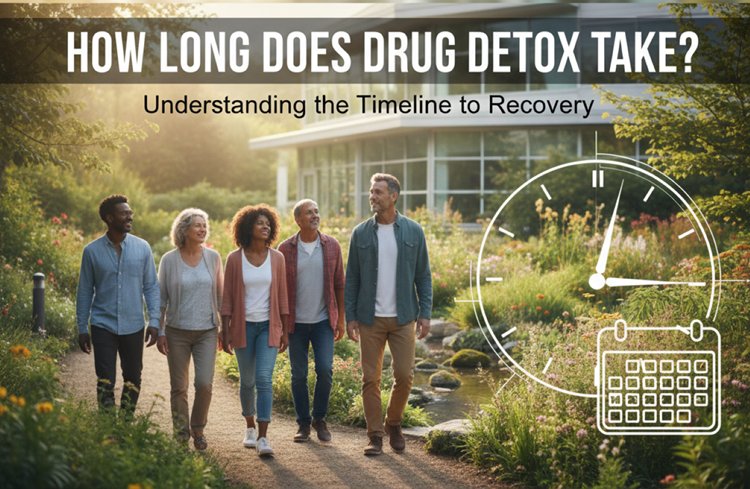Moreover, the predisposing factors towards addictive behavior are a familiar idea and include the so often alleged addictive personality. But what does this term mean? There exists a collective belief that it is actually or at least has become the truth. This blog post is titled addictive personality, which consists of descriptions of what it is or what is meant by the term; what characteristic is linked to addictive personality; what might have caused it; and how it might be manifested in behaviors.
What Does an Addictive Personality Mean?
An addictive personality includes characteristics of behavior and thought that make one prone to getting addicted to something. That would involve substance use addictions, including drugs or alcohol, and process addictions like gambling, shopping, or social media. People of any age are capable of developing an addiction, but there are specific signs of personality and surroundings that can bring increased danger.
Key Traits of an Addictive Personality
Although not everyone with these traits develops an addiction, the following characteristics are commonly associated with an addictive personality:
- Impulsivity
Society of consumptions can also present a high level of impulse – that is, a capacity to carry out actions lacking anticipations as to the results needed in the future. This may lead him to use substances or prefer to try any act that may make him get addicted in the easiest way possible.
- High Sensitivity to Reward
This wire is normally pulled to activities or things that facilitate easier and quicker access to the addictive substance. This high sensitivity to reward can cause repeated returns to the reward, but may be harmful behaviors.
- Difficulty Coping with Stress
Coping stress decreases as a result of having an addiction-prone personality. Some people use or participate in other addictive behaviors in an attempt to anesthetize painful affect.
- Low Self-Esteem
Self-uncertainty or what we commonly blurt out as low self-esteem, leads to a need for recognition or a temporary high in addictions. For instance, a person may take Alcohol /or drugs to decrease a feeling of anxiety or to increase feelings of self-esteem in social settings.
- Risk-Seeking Behavior
The risk of using experimentation of addictive substances or activities is high when an individual has an attraction to risky activities or danger.
100% Confidential Support is Available 24/7
No matter what you’re going through, you’re not alone. Our dedicated team is here to provide a safe, judgment-free space where you can talk openly and honestly. Whether you need emotional support, resources, or just someone to listen.
We’re here for you—completely confidential and always respectful of your privacy. Call us today!
Is addiction only a matter of character?
On the other hand, addiction is a process of the person’s psychological predispositions, his/her genotype and other influences coming from the immediate surroundings of the living area. Others are heredity influence, friends, and availability of the substance to abuse as well as a history of abuse.
Contact Palm Coast Treatment Solutions
Battling with Drug and Alcohol Addition? Remember, you are not alone and we are here to help you!
Is Addiction Solely a Personality Issue?
Thus, many factors, including biological, environmental, and psychological influences, contribute to the foundation of addiction beyond personality. Other determinants affecting addiction include genetics, past trauma, social influences, and the environment where adults obtain substances, all of which impact their likelihood of developing an addiction.
Overcome Addiction with Palm Coast Treatment Solutions.
Book an appointment.
How to Recognize Signs of Addiction
Recognizing early signs of addiction can be crucial for intervention. Watch for:

- Cannot think of anything else but the substance or behavior.
- Loss of control over usage.
- Symptoms that manifest when one decides to stop taking it.
- Abandonment of duties or people close to one is.
- Persistent use despite adverse effects being produced in the body, which are unavoidable whenever the substance is consumed.
Can an Addictive Personality Be Treated?
Yes, individuals with addictive tendencies can find help and support through:
Therapy: CBT and DBT as two forms of behavioral therapy, are used to treat the underlying behavioral patterns.
Support Groups: Narcotics Anonymous (NA), or Alcoholics Anonymous (AA), or other support groups to foster community rehabilitation.
Healthy Coping Strategies: Hobbies, knowledge of stress-releasing methods, and strong social relationships reduce the dependency of the person on the addiction.
Overcome Addiction with Palm Coast Treatment Solutions.
Book an appointment.
Preventing Addiction in At-Risk Individuals
It is very important for the personality that had an addictive property to consider the following preventive actions. Encourage:
Awareness of Triggers: Avoiding stimuli that make you essentially ‘triggered’ into performing the addictive behavior.
Open Communication: Relating one’s problems as though they are complications, not a weakness, can be of great merit in seeking help.
Seeking Professional Help: Specifically, the support of mental health or addiction specialists helps make a change when it is early enough.
Breaking Free from Addiction
A focus on “an addictive personality” speaks of those risk factors but always indicates that addiction is not inevitable. With knowledge of these traits, people should be able to successfully cope with the tools necessary and lead happy and sober lives.

If you or a loved one has been an addict, then consulting an addiction specialist and a healthcare professional is very important. Therapy, medications, and support groups should be considered for conquering addiction because once a person develops dependency, they can work to change the behavior.






















